Idea of Justice to a journey for Justice at Imphal
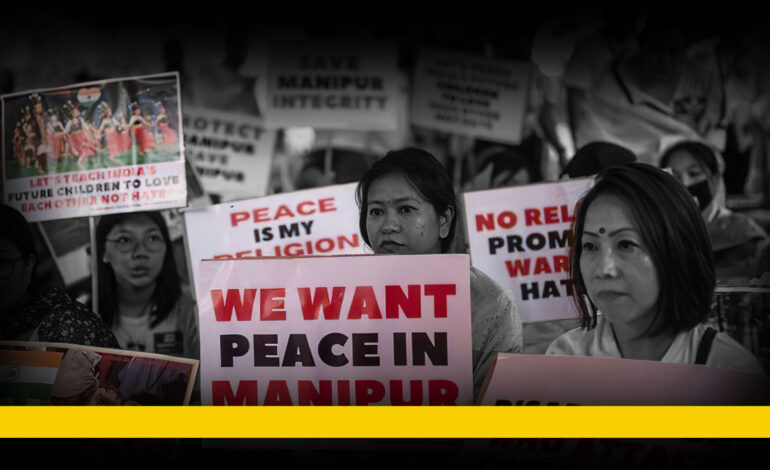
Renowned, award winning filmmaker Joshy Joseph, delves into his personal experiences in Manipur and thinks aloud on the idea of justice for the trouble torn region.
Ratan Luwangcha, a photographer friend from Imphal was shot at his residence some 15 years back by a valley based insurgent group. Ratan was the most popular and vociferous scribe/ photographer from the valley for civilian causes and had exposed many a scams. Ratan was seriously injured and was admitted in ICU. Word got around fast about the urgent requirement of blood. The mothers of Imphal queued up in hordes. They infused new blood and a new vigour into my friend who was bedridden for almost an year.
Later, Ratan, practically in his second birth, told me about a strange morning walk in the lanes and bylanes of Imphal. An old man and his swan would go for long winding walks at around 3AM, collect daily newspaper and by the sunrise around 4am (yes, sun rises early in our North Eastern region of India) return home. Then the old man Chauba would feed Tomba, his pet swan. Chauba would start to read the Manipuri daily and Tomba would get into a nearby pond. A pet dog would watch over these sessions with an air of neutrality from a distance.
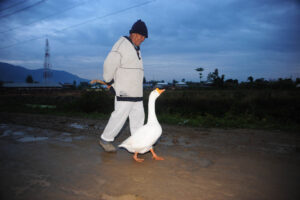
Now in January 2024, I read an India Today report, which states as follows., “In bone-dry statistics, about 200 killed,1000 injured and 60,000 homeless between May and August (2023). All this while the state police and even the armed forces, for the most part remained helpless spectators. Even arms and ammunition were looted from the police constabulary amid allegations of state complicity”.
The story of Chauba’s strange morning walk looks like a very slight material in retrospect. But it is not as though Chauba and the swan were walking through absolutely peaceful streets of Imphal. Many would think that the times prior to the present fractured law and order landscape in the state were absolutely peaceful. It was not like that.
The times through which Tomba and Chauba walked were bloody times too. Ofcourse, the scale was much smaller and the violent eruptions were mainly between the State and non-State actors. When Ratan Luwangcha narrated the story of this man and his swan in a nuanced manner, along with the narration of the milieu of those days, with a mixture of beauty and violence it used to come across like a Shakespeare play.
Everyday around 3 in the morning, a beak pushing the mosquito net was egging the sleeping old man to get up. One day, he was not sure of that day’s morning walk as a curfew was imposed in the region. Two encounter killings which were captured by a hidden camera and were exposed by Tehelka magazine. It had triggered a civilian uprising. The swan, which was trying to wake up the lazy master, made all sorts of bird sounds; whistle, trumpet, hiss and snort.

Finally they were on the move only to be stopped forcefully by the security personnel. They were forced to return home. The subsequent day repeated the same narrative. Swan whistled to the security personnel. They returned home again. The civilian unrest was boiling high and the curfew continued. Both Tomba and Chauba defied the curfew in place and walked through the enveloping mixture of soundscapes created by the swan’s whistle, which was a sort of reply to the army whistles, during the next couple of days. It became a curious sight even for the armed forces on the Imphal streets.
I found an ultimate metaphor in this material and shot the man and the bird with an idea to return with my Crew for making a film with a longer duration. Alas, this was not destined to happen. The old man died suddenly and the only documentation available was Ratan’s photographs and my short video on the man and his strange morning walks.
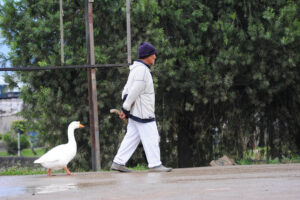
This short film was referred to animal/bird clearance board by the Central Board of Film Certification and a bizzare letter landed on my table. It said that the swan is not a domestic bird and as a responsible Gazetted Officer, employed with the Films Division, I should take action on the film by informing the Forest Department of Manipur. The metaphor of the old man and the swan in the midst of a tussle between the State and non- State actors was turning into a story that consumed me too. The maker of the film ‘Old man and swan’, was becoming part of a complex Manipur metaphor.
On a later visit with Ratan in Imphal, I found two swans floating in that same pond frequented by Chauba and Tomba. The widow of Chauba explained the story after the old man’s death. After the disappearance of the master, the swan started following anybody with a walking stick on the street. It criss-crossed the road searching for its fellow walker. The native wisdom of the old lady prompted her to get another companion of the same species.
Then, as a Gazetted Officer with the Ministry of Information and Broadcasting, Government of India, I saw a potential for being targeted for a double offense. It is not a single swan but two swans there in the pond. Should I write on the file that the bird is wrongly identified as a swan but actually it is a duck? The film ‘old man and swan’ never came out of the Censors! That is what happens when a filmmaker is obsessed with the idea of mirroring the universe on a dew-drop. (Ha, a metaphor again)
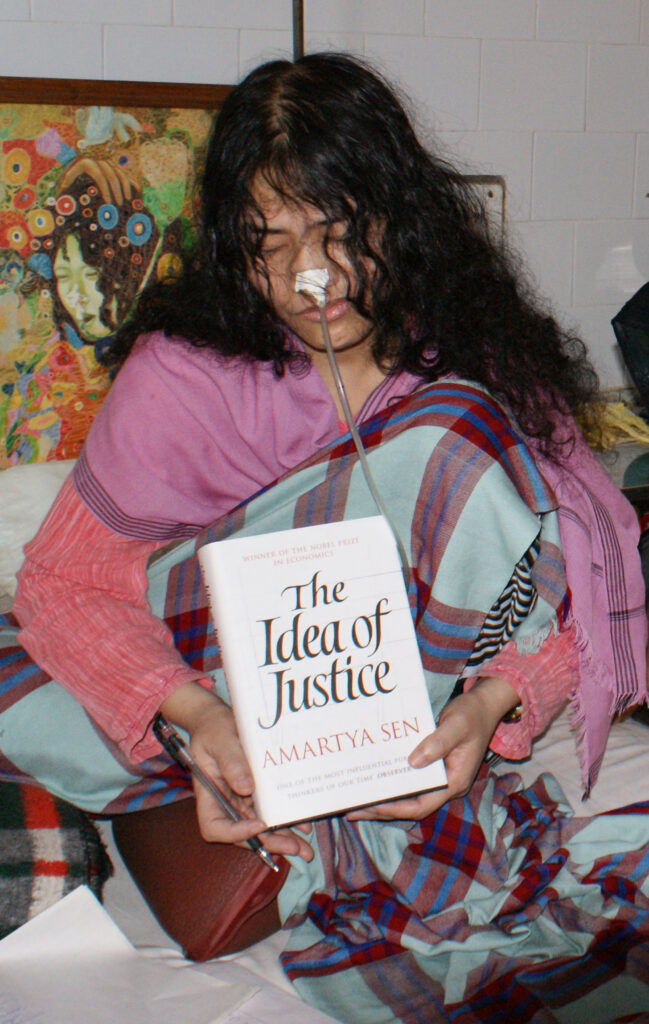
When I met Irom Sharmila, the legendary Gandhian fighter of Manipur who refused to eat and had survived through forceful nasal feeding for sixteen long years, the metaphor obsessed filmmaker had a hardcover copy of Amartya Sen’s seminal book, ‘The idea of Justice’. Irom scribbled on the first page and we took a photograph. Later I had witnessed that epic moment in Sharmila’s life when she decided to end her fight against the draconian lawless law AFSPA 1958. She was gleefully feeling the touch of food when a nurse at the Jawaharlal Nehru Hospital poured a few honey drops onto her left palm. Sharmila felt the honey drops and was going to taste it with a smile. Suddenly she withdrew her right hand with a visible jerky movement. Sixteen long years were reflecting on those honey drops. Sharmila became melancholic at that ‘to-be or not-to-be moment’. The whole visual media had obliterated that two minutes of epic conflict which was not fitting into their breaking news format.
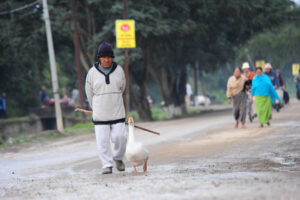
I don’t know the later part of the swan story. I know that Sharmila got married and had twin boys, but could not return to Imphal from Bangalore. The idea of Justice is still trying to cross through the lawlessness in the streets. The whole narrative came alive in front of my eyes as I learn about another long journey named as ‘Bharat Jodo Nyay Yatra’, which has Nyay (Justice) woven into it. A ripple idea for Justice could well transform into decisive waves. I have also gone through the history of this land where a handful of salt was raised and an Empire had come down. Imphal is a throbbing space in time.
To receive updates on detailed analysis and in-depth interviews from The AIDEM, join our WhatsApp group. Click Here. To subscribe to us on YouTube, Click Here.


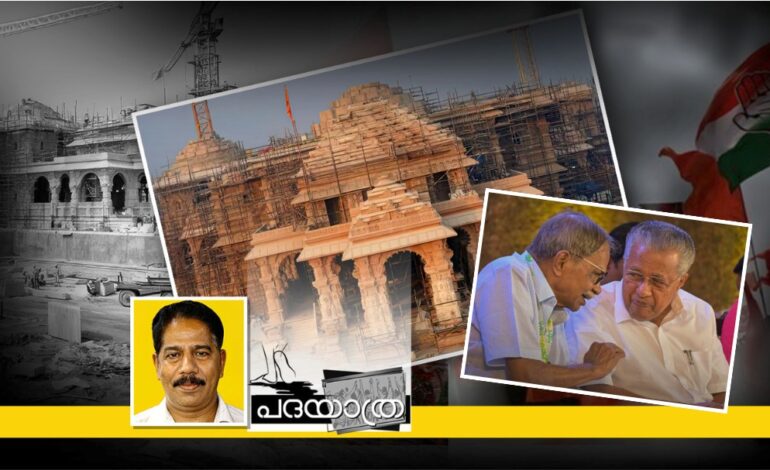
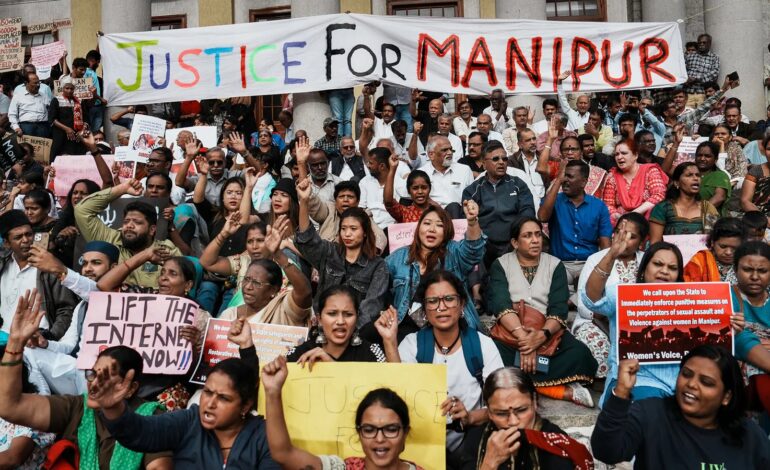



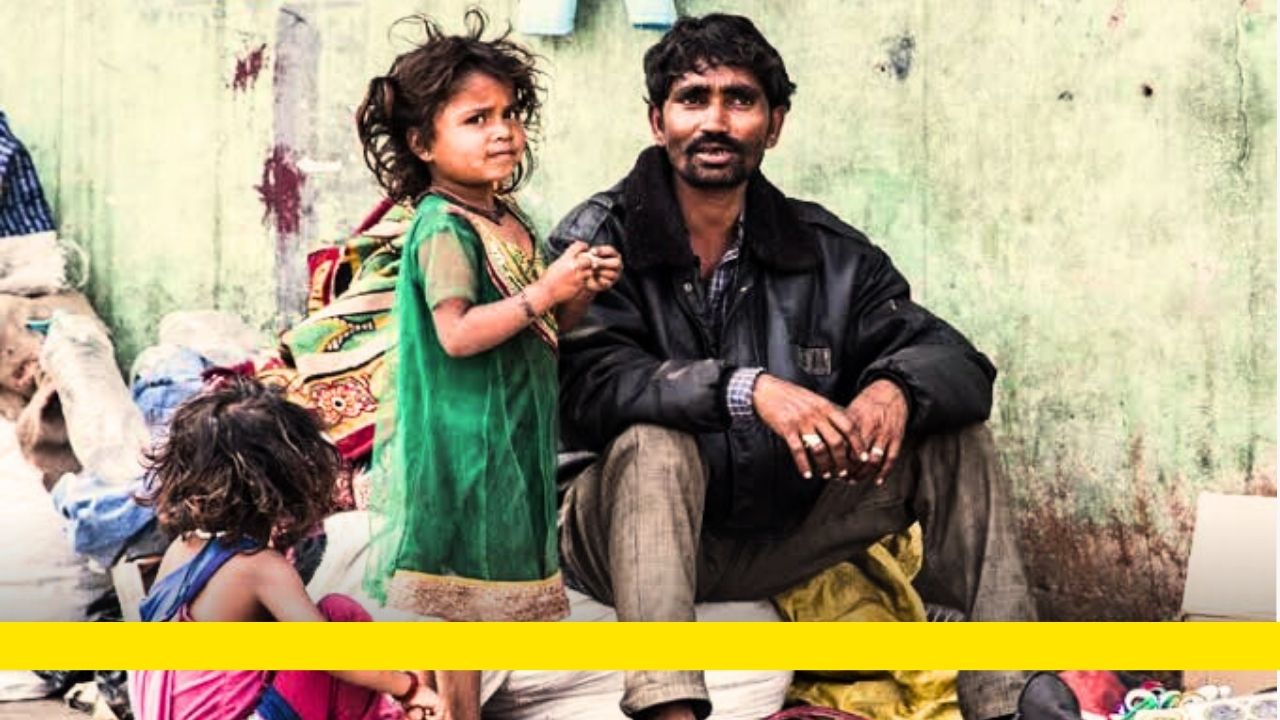


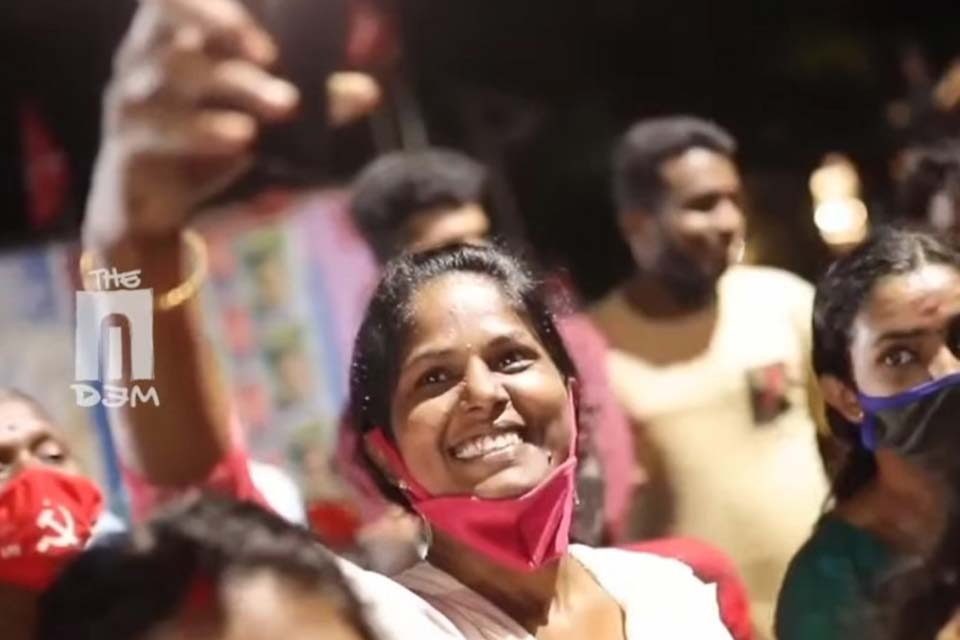

What a piece of writing . Joshy I have seen your movies , but never knew that you were such a wonderful writer .. congratulations
Beautifully written! I have been searching for Joshy Joseph’s films online. Would really appreciate if anyone could please share links, please.